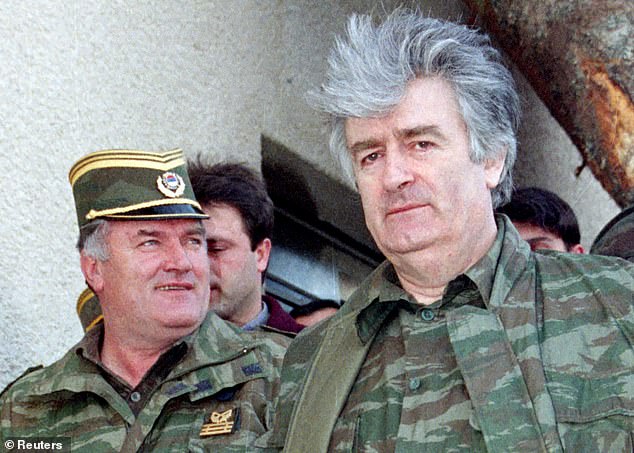A jailed war criminal known as the “Butcher of Bosnia” is suing the UK government for inhumane treatment as he is not allowed to have a laptop in his cell.
Radovan Karadzic, 79, who is in Albany prison on the Isle of Wight, is demanding £50,000 in compensation for human rights violations and also claims he has been banned from communicating in his native Serbian.
Last week he appeared in court via video link to sue Secretary of State for Justice Shabana Mahmood.
If he wins, taxpayers would have to foot his bill, as well as other legal costs.
This comes after his daughter Sonja Karadzic-Jovicevic claimed in 2021 that he was being held in “unsanitary” and “uncivilised” conditions after being transferred to the Isle of Wight.
Bosnian Serb wartime leader Radovan Karadzic (right) and his general Ratko Mladic on Vlasic Mountain, April 1995. Karadzic, 79, who is in Albany prison on the Isle of Wight, is suing the UK government for human rights abuses.
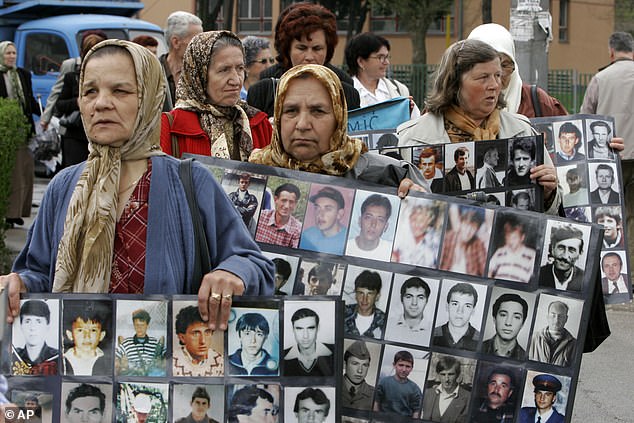
Karadzic is behind some of the most heinous war crimes since World War II. Pictured: Bosnian Muslim women and survivors of the Srebrenica massacre hold signs with photos of missing men after the fall of Srebrenica, during a peaceful protest in Tuzla, 70 km (43 miles) north of Sarajevo, Tuesday April 11, 2006
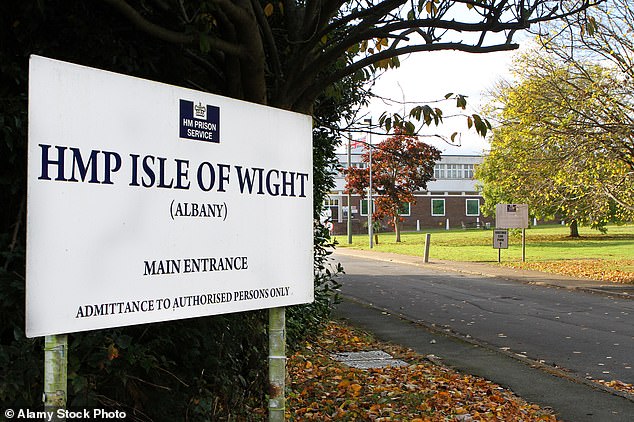
A sign at the main entrance to the Albany site of HMP Isle of Wight on Parkhurst Road, Newport, Isle of Wight, where Karadzic is serving a life sentence
She told Bosnian news agency SRNA: ‘As for the physical condition in which he is housed, it is unacceptable.
“If we add to that the fact that it is in a building full of carcinogenic asbestos, banned worldwide, it is clear what conditions it will be in.”
He also claimed that the “Butcher of Bosnia”‘s move to Britain was done deliberately to spite his family.
She said: ‘My father is in a very uncivilised situation and as far as his family is concerned, his move to the south of England was done deliberately to keep him away, outside the rules of the United Nations Resolution adopted by the Security Council.
“It will be very difficult for us physically, financially and procedurally, because of visas and immunization during the pandemic, and even after that, to be able to go there and visit.”
She also said her books and computer were taken away from her and she could no longer speak her language or live her culture.
The former Bosnian Serb leader was convicted in 2019 of genocide against Croats and Muslims during the Balkan war.
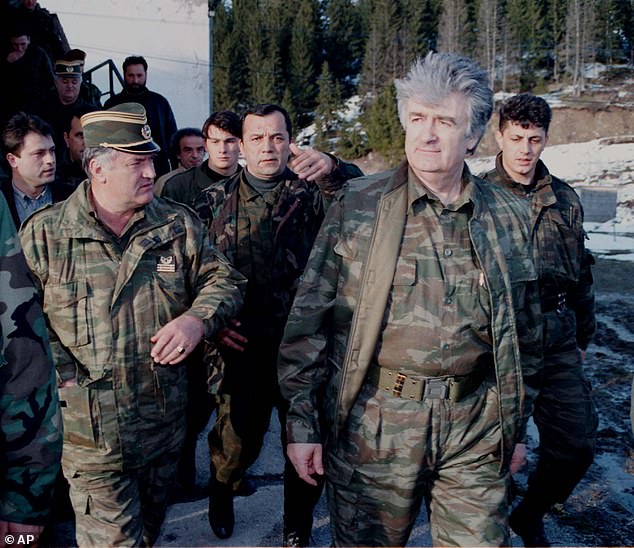
Bosnian Serb wartime leader Radovan Karadzic (second from right) and his general Ratko Mladic (first from left) walk accompanied by bodyguards on the front line of Mount Vlasic in Serbia. FILE – In this April 15, 1995 file photo, Bosnian Serb wartime leader Radovan Karadzic (second from right) and his general Ratko Mladic (first from left) walk accompanied by bodyguards on the front line of Mount Vlasic in Serbia.
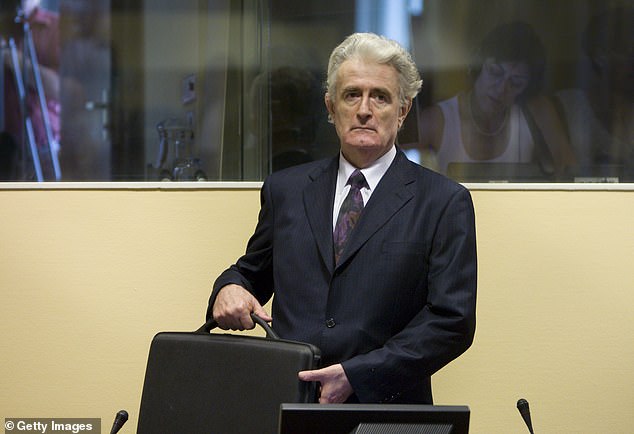
Former Bosnian Serb leader Radovan Karadzic makes his first appearance at the International Criminal Tribunal for the former Yugoslavia (ICTY) on July 31, 2008 in The Hague, Netherlands.
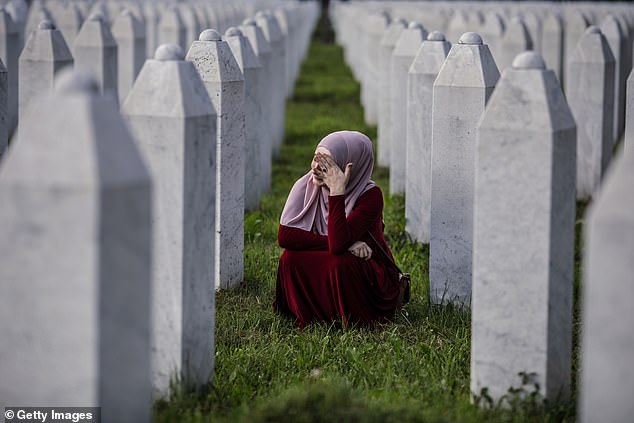
A Bosnian Muslim woman cries among the graves of her father, two grandfathers and other close relatives, all victims of the Srebrenica genocide, on July 10, 2020, at Potocari cemetery near Srebrenica, Bosnia and Herzegovina. More than 8,000 Bosnian Muslim men and boys were killed after the Bosnian Serb army attacked Srebrenica, a UN-designated safe zone, on July 10 and 11, 1995, despite the presence of UN peacekeepers.
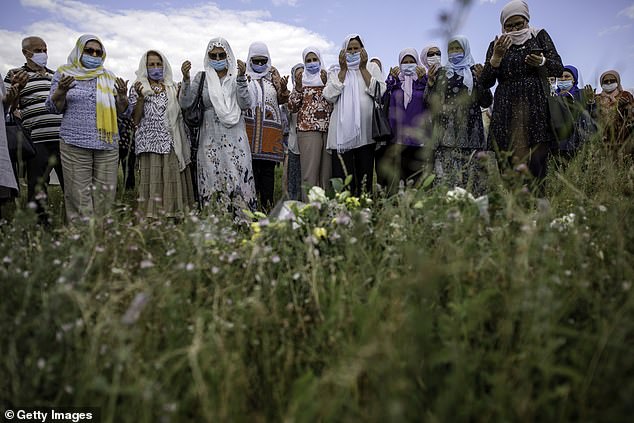
Bosnian Muslim women pray as relatives of victims of the Srebrenica genocide visit the sites where their loved ones were mass executed in 1995, on July 13, 2020 in Brnjevo, near Srebrenica, Bosnia and Herzegovina
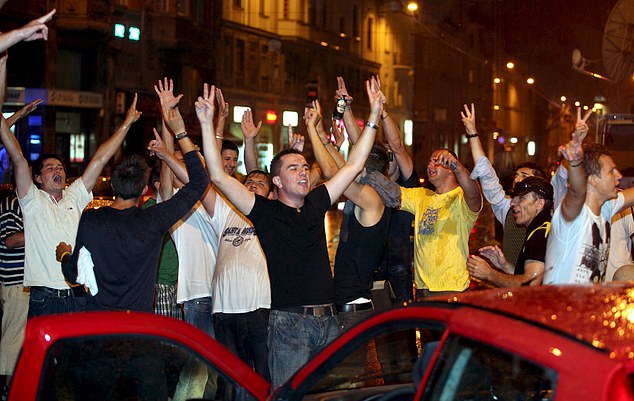
Bosnian Muslims celebrate in Sarajevo after the Serbian president’s office announced that Serbian security forces have arrested Bosnian Serb wartime leader Radovan Karadzic, one of two main suspects in war crimes in the Balkans, after 13 years on the run.
A psychiatrist turned politician, he is responsible for some of the worst atrocities committed in Europe since the end of World War II, including the massacre of 8,000 men and boys in the Srebenica genocide.
He was initially sentenced to 40 years in prison at the International Criminal Court in The Hague, but his sentence was later increased to life imprisonment without parole. He is expected to die in prison.
Prisoners convicted by the United Nations ICTY are distributed among member states.
He was flown from the Netherlands to the UK in 2021.
Britain was heavily involved in his conviction, with former foreign secretary Dominic Raab acting as one of the young lawyers who drew up the legal procedure for his transfer to the UK.
(tags to translate)dailymail


